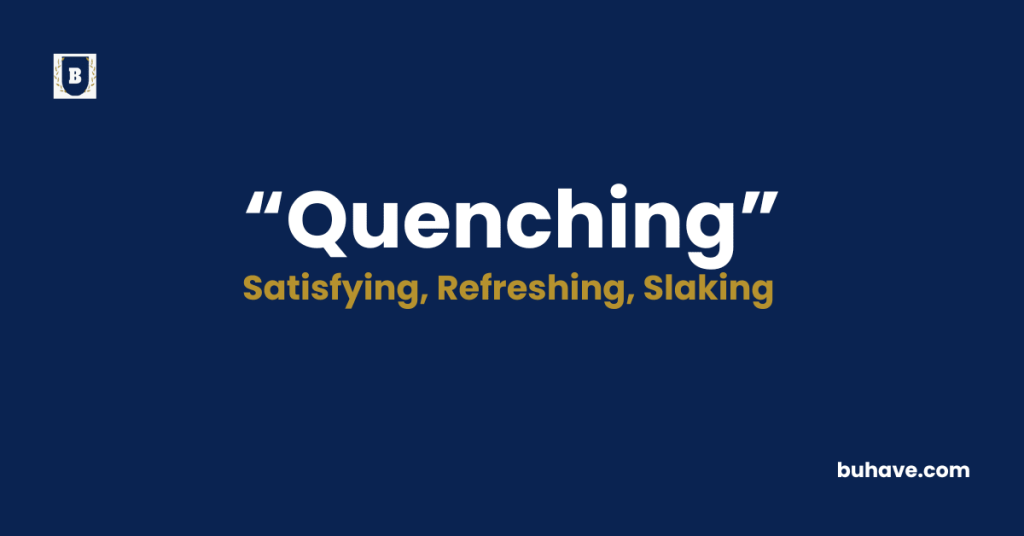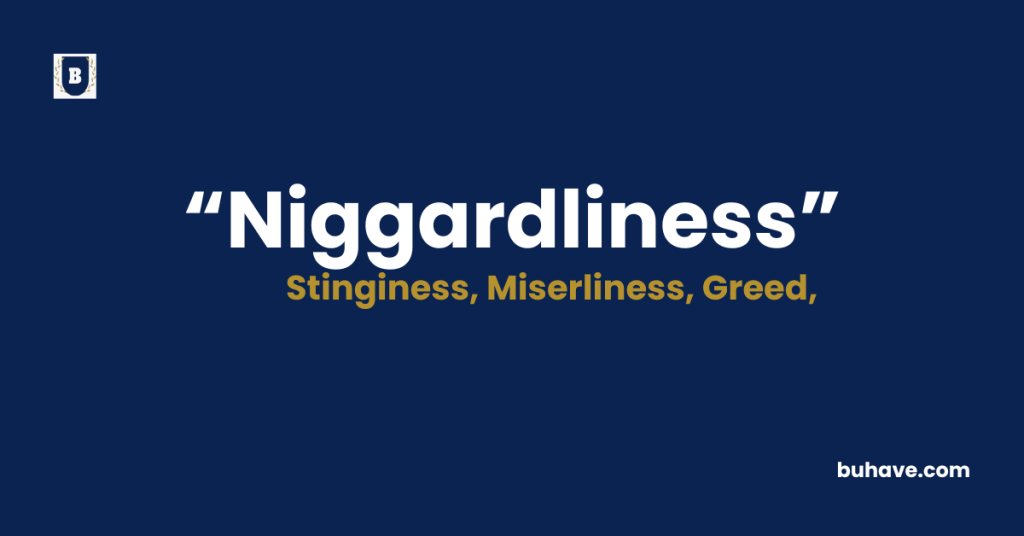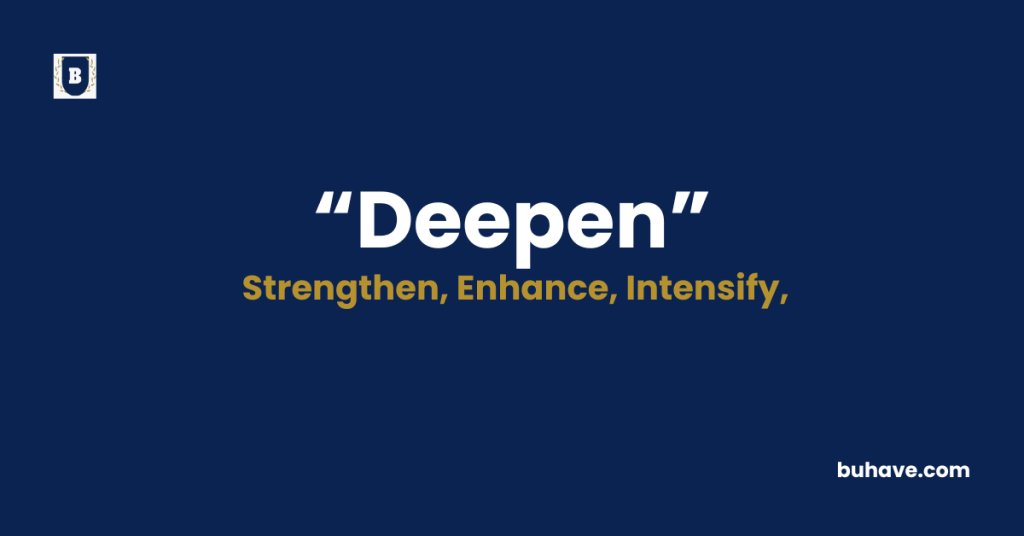The word ‘Quenching ‘ (Adjective) describes that act of satisfying or extinguishing something, such as thirst, desire, or even a flame. in this guide, you’ll learn the full definition, synonyms, antonyms, etymology, and real-life examples of how to use ‘Refreshing’ correctly in sentences.
Quenching Explained in Depth
A complete and detailed guide to the words Quenching including meaning, definition, examples, etymology, synonyms, and antonyms.
Meanings of Quenching
The word “quenching” refers to the act of completely satisfying or putting an end to something intense, especially thirst, desire, or even heat. When you feel incredibly thirsty, for instance, and you take a long, cool drink of water, that drink quenches your thirst—it gives you full relief. In other words, your need no longer exists because something has fulfilled it.
Moreover, people often use “quenching” to describe more than just physical needs. For example, if you’re deeply curious about a topic and you read a book that answers all your questions, that book quenches your curiosity. In yet another sense, blacksmiths quench hot metal by cooling it quickly, usually in water or oil, to harden it.
Definition:
Quenching refers to the act of satisfying or extinguishing something, such as thirst, desire, or even a flame. In a more general sense, it means bringing something to an end by fulfilling it refers to the act of completely satisfying or putting an end to something, especially a strong feeling or physical need—like thirst, hunger, or curiosity. Most commonly, people use it to describe the relief and satisfaction that comes from drinking something cool when you’re extremely thirsty.
However, it can also apply more broadly, such as it a desire for knowledge, an emotion like anger, or even in science, where it refers to quickly cooling hot metal to harden it.In everyday life, it is that satisfying moment when your need or craving is fulfilled—it’s more than just stopping the feeling, it’s about deeply relieving it.
Etymology
- Old English: – meaning “to extinguish” or “to put out (a fire)”.
- Middle English: quenched – which continued the meaning of extinguishing or suppressing.
- Proto-Germanic: – meaning “to make disappear” or “to lessen”.
- Related Old High German word: it, which meant “to vanish” or “to extinguish”.
Example Sentence
- Firstly, after a long hike under the scorching sun, quenching my thirst with cold water felt incredibly satisfying.
- Moreover, the blacksmith quickly cooled the heated metal by quenching it in water, thereby strengthening its structure.
- Consequently, the athlete focused on quenching her thirst immediately after training to avoid dehydration.
- In addition, the refreshing lemonade was not only delicious but also perfect for quenching our thirst on a hot summer day.
Synonyms
- Satisfying
- Slaking
- Extinguishing
- Soothing
- Cooling
- Dousing
- Refreshing
- Suppressing
- Subduing
- Alleviating
Antonyms
- Geniting
- Parching
- Dehydrating
- Drying
- Arousing
- Inflaming
- Stimulating
- Warming
- Intensifying
- Provoking
FAQs about Quenching
Here are some Frequently Asked Questions (FAQs) about the word “quenching
1. What does “quenching” actually mean?
“Quenching” means completely satisfying or putting an end to something intense—like thirst, curiosity, or even fire. So, when you quench your thirst, you drink enough to feel satisfied. Similarly, you can quench a desire or even a flame.
2. Can “quenching” apply to emotions or just physical things like thirst?
Yes, it definitely goes beyond physical needs. People often use “quenching” when they satisfy emotional or intellectual needs too. For example, someone might say, “That book quenched my curiosity about space travel.”
3. Is “quenching” always a good thing?
Usually, yes. It typically refers to relief, satisfaction, or fulfillment. However, in certain technical or scientific contexts—like metalwork—quenching may involve cooling hot metal rapidly, which can sometimes lead to brittleness.
4. What’s an example of “quenching” in everyday conversation?
Sure! Imagine someone says, “I grabbed a smoothie to quench my thirst after jogging.” That sentence shows how the person used a drink to fully satisfy their need for hydration.
5. Where does the word “quenching” come from?
It comes from the Old English word cowmen, which meant “to extinguish or put out.” Over time, it evolved to mean satisfying any strong urge or need—especially one that feels urgent or intense.
6. Is “quenching” a formal word or casual?
“Quenching” can work in both formal and casual settings. In daily speech, it often describes physical relief like thirst. In more technical writing, it might describe processes in science or engineering.
Explore more Q words:






